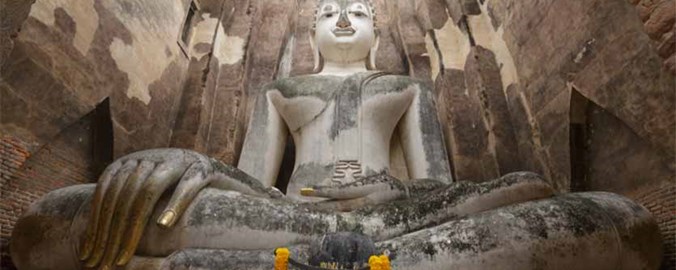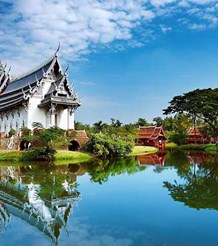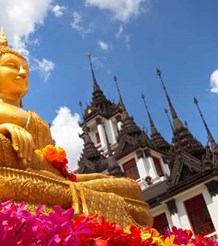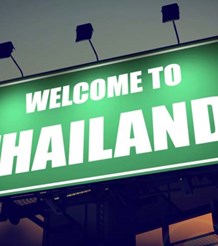
Thai Property Market Showing Signs of Resilience
The outlook for Thailand's property sector remains positive as domestic demand picks up to outweigh recently declining investment of foreign capital.
Foreign investment in Thailand's property market took a hit from the Bangkok bomb blast in August but the sector is resilient and the long-term outlook is positive according to analysts and developers in the country.
James Pitchon, executive director of consultancy CBRE Thailand said: "The tragic blast at the Erawan [Shrine] has hurt the overall market sentiment a bit. We were quite worried in the week afterwards but the overall state of the economy is a far more important issue driving the performance of the property market rather than a single tragic event".
Koh Keng-Shing, the chief executive of Hong Kong-based Landscope Christie's International Real Estate said one of his Thai clients, the developer Ananda, postponed its project sale campaign in Hong Kong to late September, although none of its buyers had backed off from deals in late August because of the bombing.
Thailand's real estate sector is more domestically driven, reliant upon large-scale foreign capital. International buyers have been concentrated in the country's luxury property sector, where prices are usually over €250,000. In central Bangkok, approximately 20% of high-end condo buyers are foreign, Pitchon said, with investors from Hong Kong and Singapore snapping up the lion's share.
The blast in Bangkok also took a toll on Thailand's tourist arrivals which had potential to hit the country's hotel sector and resort related developments, although according to a recent report from Daiwa Capital Markets, it may only take three months for Thailand's tourism to rebound after the blast.
Jonathan Umali, director of asset management at Arch Capital said: "The market is very resilient. It dips down for a quarter or six months and it goes back up". Umali is planning to launch phase one of his mixed-use 13 hillside villas and 75 beachfront condos that are priced from €200,000.
For tourism-driven resort properties such as Umali's, being far from Bangkok gives it some insulation from urban upheaval. In the past, these types of properties have been popular among foreign expatriates, but since the global financial crisis in 2009, demand has cooled slightly, according to analysts.
Despite a moderate decline in foreign in interest in Thailand's property, Chinese buyers are stepping up activity in the country and according to Chinese property portal, Juwai.com, Chinese appetite for Thai property is larger than for any other country.
The average price of real estate searches by Chinese buyers has also increased significantly by 39% since the beginning of the year, representing an increase in budget of 111% on 2014 with Chinese buyers seeking properties with an average price of €534,723.
Juwai.com CEO Andrew Taylor said: "Chinese buyers are taking advantage of their strong currency and proximity to Thailand to invest in vacation homes and investment properties. Over the past five years the renminbi has gained 19% on the baht. Chinese businessmen with commercial interests in Thailand were among the first buyers of local residential real estate. Now you see vacationers and investors joining their ranks. The top destinations in Thailand are Pattaya, Koh Samui, Phuket, Chiang Mai and Bangkok".
"Thailand could greatly profit from the projected massive increase of Chinese international property investment in the coming decade. It could easily displace other countries that are currently more popular with Chinese buyers. Thailand has advanced from the 10th most popular country with Chinese buyers to the 9th," he added.
Increasing Chinese tourism in Thailand has been a particular incentive for Asian developers to pour investment capital into the country's commercial real estate market. The hotels and hospitality sector is booming in 2015 as major international brands steam into Thailand's most popular resorts such as Bangkok and Pattaya, building to meet ever-increasing tourist demand, particularly from China.






